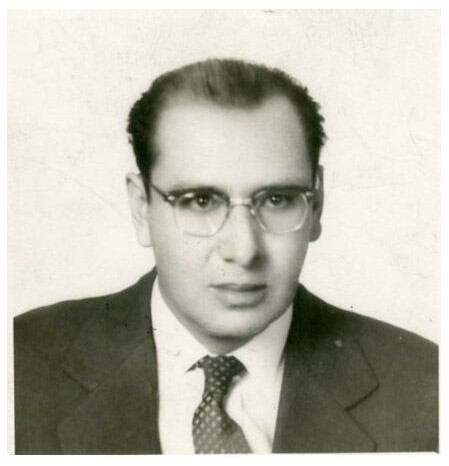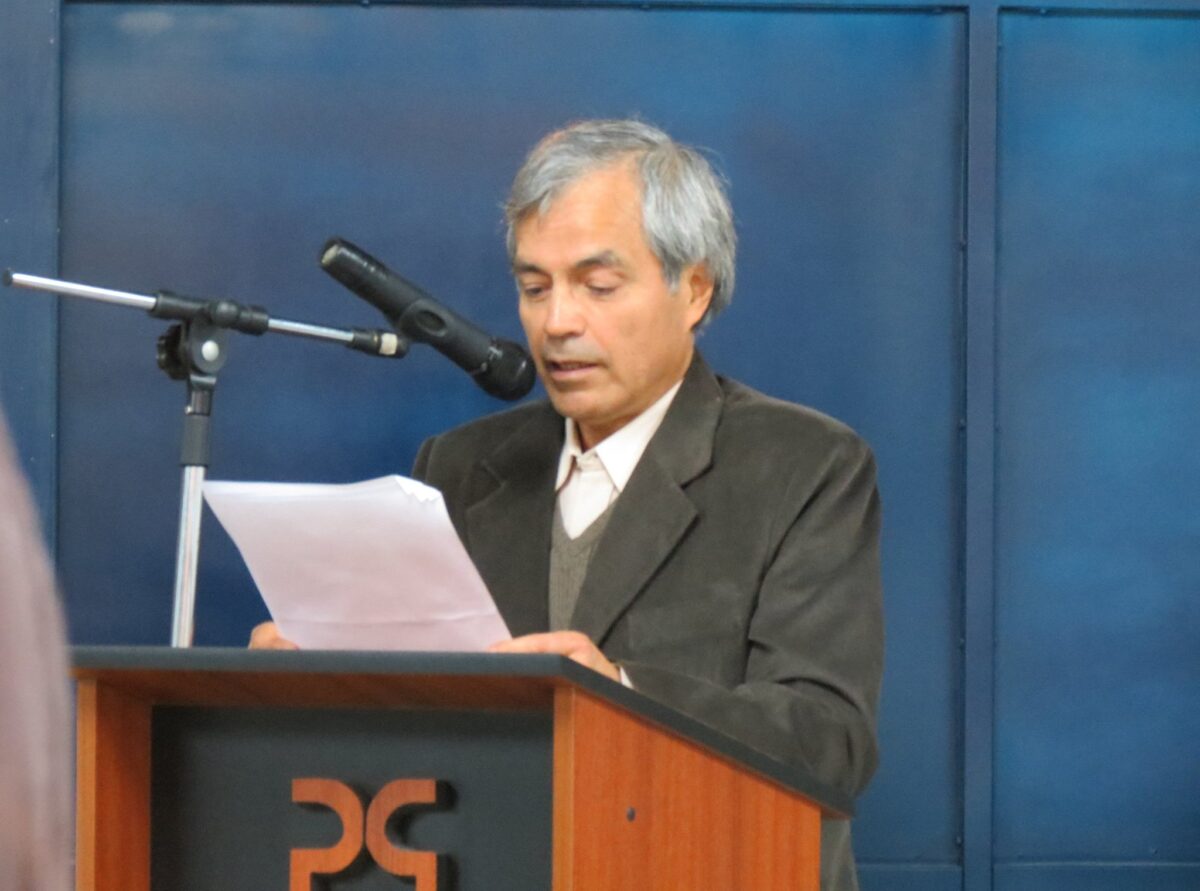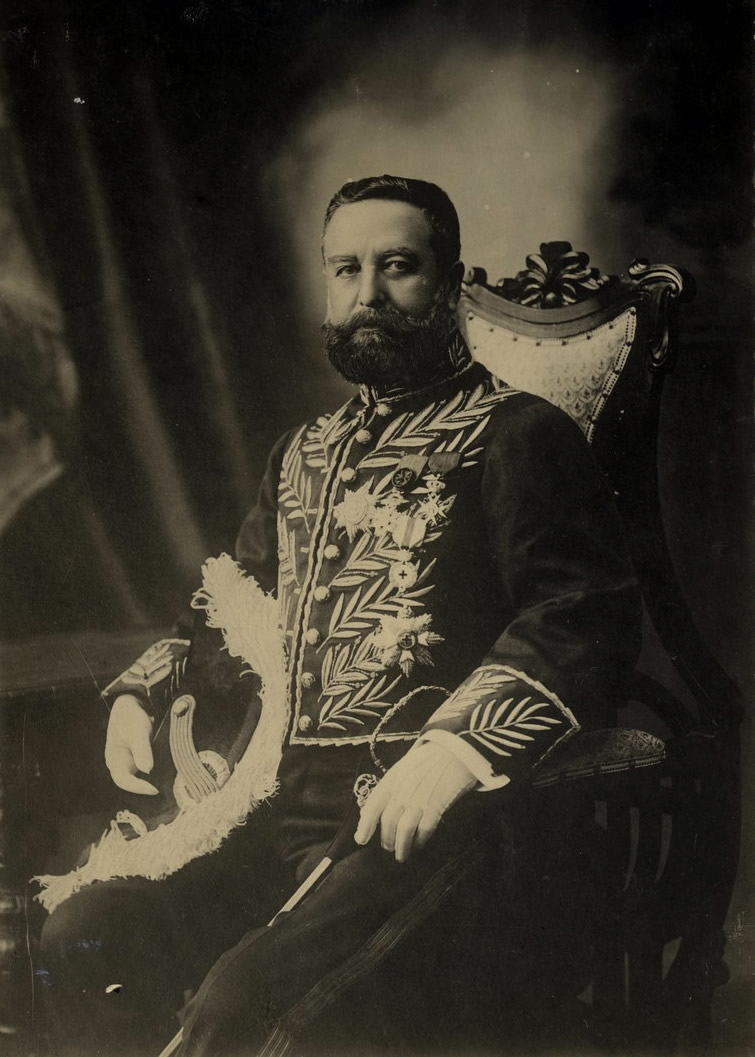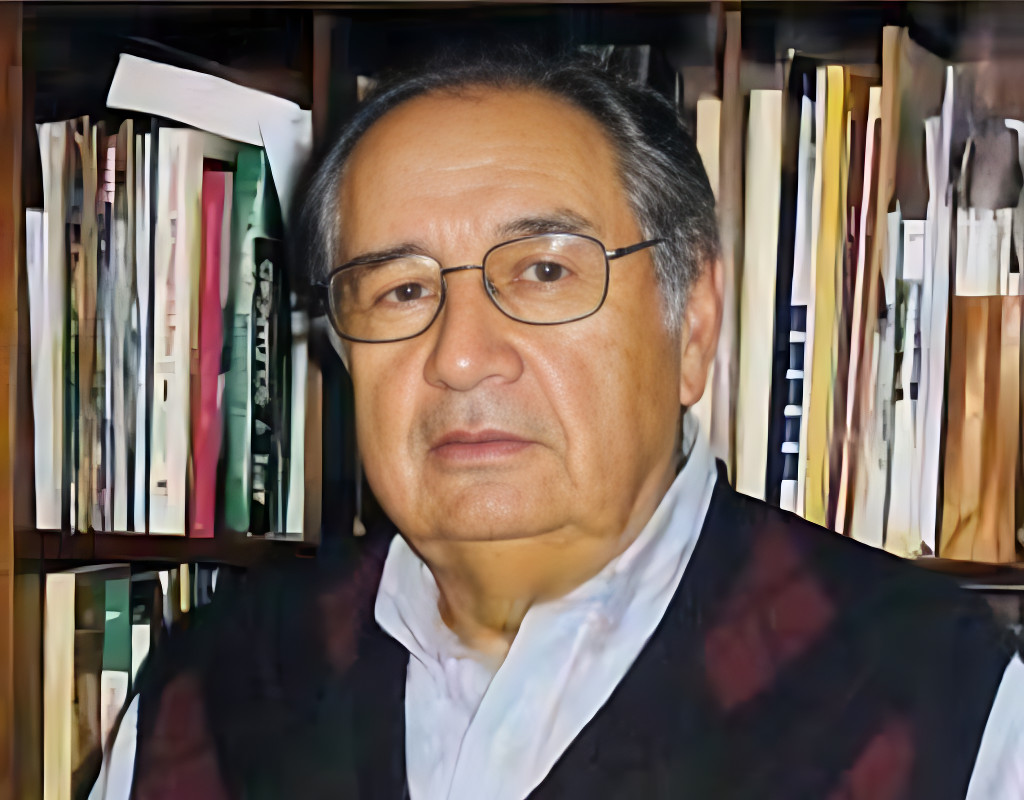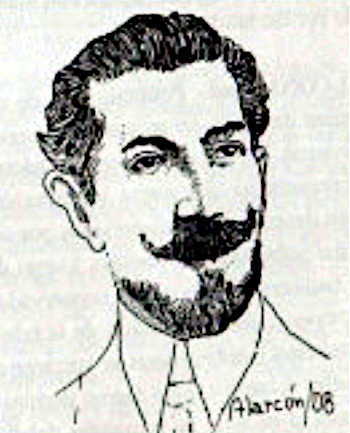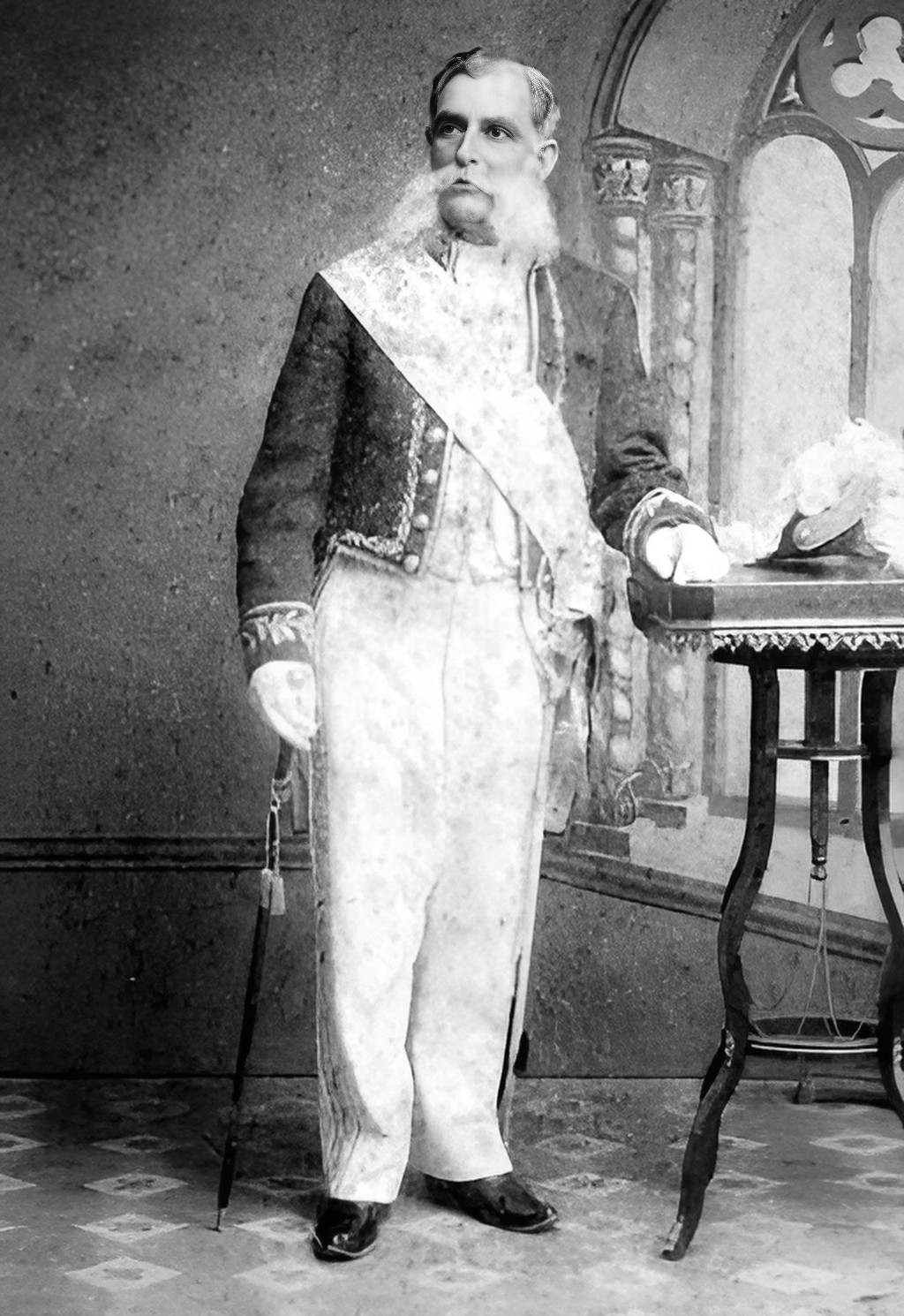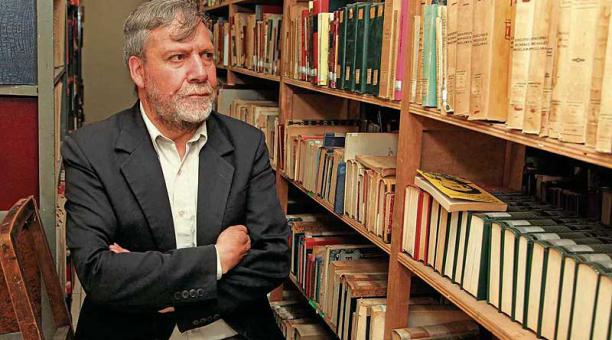Gilberto Molina Correa (Cañar, September 20, 1915 – Unknown) was an Ecuadorian poet, novelist, playwright, short story writer, essayist, and educator. His diverse body of work spanned multiple genres, including notable contributions such as the novel Sismos y abismos (1969), the short story collection Almas conturbadas (1962), and the play Censo sin consenso (1962). He also authored the poetry collection La inefable presencia (1966). He was an influential advocate for educational reform and a school director, serving as head of Escuela Municipal “Joaquín Donoso” in Vinces. Molina Correa left a lasting mark on both Ecuadorian literature and education.
Continue reading “Gilberto Molina Correa”Category: Writers from Cañar
César Molina Martínez
César Molina Martínez (Cañar, 1965) is an Ecuadorian poet and public servant currently residing in Chicago. He holds a degree in Political Science from the University of Cuenca and has served in various public roles, including as a councilman for the Municipality of Cuenca. His poetry, often exploring themes of exile, migration, and identity, has earned significant recognition, including the Premio Nacional de Poesía Jorge Carrera Andrade for Catholic Splendor (2000) and the Premio Nacional de Poesía César Dávila Andrade for Código de extranjería (2007). Molina Martínez’s work, known for its narrative intensity and biblical references, reflects his experiences living between Ecuador and the United States.
Continue reading “César Molina Martínez”Oswaldo Encalada Vásquez
Oswaldo Encalada Vásquez (Cañar, 1955) is a philologist, writer of both fiction and children’s literature, and an academic. His substantial contributions to the field of linguistics and literature earned him the prestigious “Fray Vicente Solano” award, conferred by the Municipality of Cuenca on October 18, 2004. This recognition underscores his significant influence and standing in Ecuador’s intellectual and cultural domains. Throughout his career, Vásquez has served in notable positions, including professorships at the Universidad de Azuay and the Colegio Manuela Garaicoa de Calderón. Additionally, he is a distinguished member of the Ecuadorian Academy of Language, further testament to his respected status in the academic world.
Continue reading “Oswaldo Encalada Vásquez”Enrique Noboa Arízaga
Enrique Noboa Arízaga (Cañar, January 22, 1921 – September 10, 2002) was an Ecuadorian poet and public official who held positions such as Director of Education of Cañar, National Vice President of the House of Ecuadorian Culture, Undersecretary of the Ministry of Culture, among others. His poetry collections include: “Orbita de la pupila Iluminada,” “Ambito del Amor Eterno,” “Biografía Atlántida,” “Las Posadas de Otoño” and “Poética.” He was awarded a “Gold Medal” in the Ibero-American poetry contest in Uruguay, “Capulí de Oro” in Ambato, and First Prize in the “Ismael Pérez Pazmiño” poetry contest, to name a few. He was nicknamed “Oso” [Bear] by his friends due to his corpulent body. Several schools in Ecuador bear his name.
Continue reading “Enrique Noboa Arízaga”José Peralta
José Peralta Serrano (Chaupi-Yunga, Gualleturo, present day Cañar, 1855 – Quito, December 27, 1937) was an Ecuadorian lawyer, politician, diplomat, educator, writer and journalist who founded several liberal journals in the 19th and early 20th century. He is considered the greatest ideologue of the Liberal Revolution. His works, such as “¿Ineptitud o traición?” (1904), “Tipos de mi Tierra” (1910), “El régimen liberal y el régimen conservador juzgados por sus obras” (1911), and “Eloy Alfaro y sus victimarios” (1951) are an invaluable part of Ecuadorian literature’s heritage. He was an ally of Eloy Alfaro (President of Ecuador from 1895 to 1901 and from 1906 to 1911) and held various diplomatic and public posts during Alfaro’s rule. He was one of the drafters of the 1906 constitution. He was proposed by Alfaro as a candidate to succeed him as president of the republic, which he declined in order to avoid violence from conservatives factions.
Continue reading “José Peralta”Manuel J. Herrera
Manuel J. Herrera, or Manuel de Jesús Herrera, (Azogues, Cañar, Ecuador) authored a book entitled “Luz y tinieblas del alma” [Light and Darkness of the Soul], which in 1999 made it to the list of 100 best books by authors from Cañar. Almost nothing is known about this author and no copies of the first edition are known to exist. However, an original copy of the second edition, printed in Buenos Aires, Argentina in 1930, was found to reside in the National Library of Teachers in Buenos Aires. In 2018, after a written request by Ecuadorian researchers, the National Library of Teachers sent a certified photocopy of the book to the Catholic University of Cuenca who delivered it to the Cañar chapter of the House of Ecuadorian Culture (in Azogues, Ecuador) on February 2, 2018 for research and distribution purposes.
Continue reading “Manuel J. Herrera”Antonio Sacoto Salamea
Antonio Sacoto Salamea (Biblián, Cañar, Ecuador, November 30, 1932) is an Ecuadorian literary critic, essayist, and university professor. He has a PhD from Columbia University in New York. He has served as Director of Latin American Studies and Dean of the College of Romance Languages at the City University of New York (CUNY). He has written around 20 books about Ecuadorian and Latin American literature. His first book was “The Indian in the Ecuadorian novel” (1967), wherein he analyzed the works of Jorge Icaza and Juan León Mera. The municipal library of the city of Azogues is named in his honor. He has been a member of the Ecuadorian Academy of Language since 2012.
Continue reading “Antonio Sacoto Salamea”Aurelio Falconí
Aurelio Falconí Zamora (Cojitambo, Cañar Province, March 18, 1885 – Guayaquil, August 6, 1970) was an Ecuadorian writer, poet, diplomat and teacher. Falconí was one of the initiators of modernismo in Ecuador, and along with his friends Julio E. Rueda and Luis F. Veloz, founded Altos Relieves, one of the first magazines to publish young poets influenced by modernismo. His poetry book, “Policromía” (1907), exemplifies modernismo in early 20th century Ecuadorian literature. For some years Falconí taught Spanish, literature and history at the Vicente Rocafuerte National School. He later taught Greek mythology and wrote a school text book on the subject entitled “Tratado de mitología griega y romana” (1933). He later stopped writing poetry to focus on painting.
Continue reading “Aurelio Falconí”Luis Cordero Crespo
Luis Benjamín Cordero Crespo (Cañar, April 6, 1833 – Cuenca, January 30, 1912) served as the 14th president of Ecuador between July 1, 1892 to April 16, 1895. Cordero began publishing poetry in Spanish and Quechua after his political and legal career, and in 1892 published the first Quicha-Spanish dictionary. In 1904 he wrote the Hymn of Azuay (also referred to as the Hymn of Cuenca) which is still in use today.
Continue reading “Luis Cordero Crespo”Eliécer Cárdenas
Eliécer Cárdenas Espinosa (Cañar, December 10, 1950 – Cuenca, September 26, 2021) was a renowned Ecuadorian novelist, playwright, short story writer, and journalist. Best known for his novel Polvo y ceniza (1979), which remains the best-selling novel in Ecuadorian history, Cárdenas’s works often focused on social justice, indigenous struggles, and the working-class experience in Ecuador. His prolific career included over 20 books across multiple genres, with notable accolades such as the House of Ecuadorian Culture Prize for Polvo y ceniza and the Aurelio Espinosa Pólit Prize for his play Morir en Vilcabamba. Cárdenas also served as editor-in-chief of El Tiempo newspaper in Cuenca and was a corresponding member of the Ecuadorian Academy of Language.
Continue reading “Eliécer Cárdenas”
